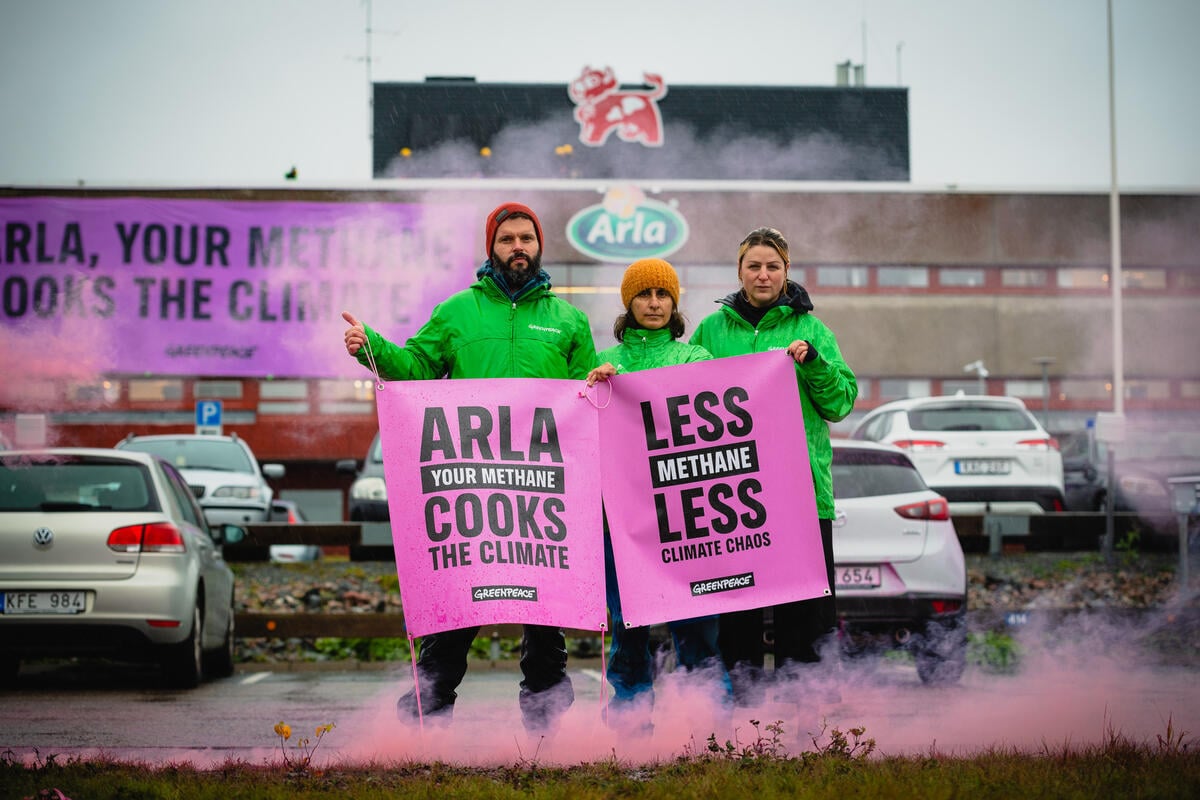Tokyo, 19 December 2016 – Traces of pesticides in urine have been found to decrease significantly among people, particularly children, who moved from a conventional to an organic diet. The findings come from a study involving two Japanese families, commissioned by Greenpeace Japan, and which backs up similar research into lower pesticide exposure in individuals who consume organic food.
“The study demonstrate how switching from a conventional diet to an organic diet can reduce the amount of pesticides in the body. This effect was most pronounced for exposure to pesticides such as organophosphate, pyrethroids and glyphosate,” said Professor Thomas Göen, from IPASUM at the Friedrich-Alexander University in Erlangen-Nuremberg, Germany.
The two Japanese families recruited for the study, both with two children, ate a conventional diet for five days and then switched to an exclusively organic diet for 10 days. Samples of their urine were taken at three times during the study (at the start, after a period eating conventional food and then after another eating organic food) and analysed at a laboratory at the Institute and Outpatient Clinic of Occupational, Social and Environmental Medicine of the Friedrich-Alexander-University Erlangen-Nuremberg.
The findings showed comparatively higher levels of some pesticides among the four children, compared to the adults. Children can be very susceptible to the effects of toxic chemicals as their organs are still in development. A child’s developing brain is also more susceptible to neurotoxicants, and the dose of pesticides per body weight is likely to be higher in children due to their small size.
The study investigated the urinary levels of six types of pesticides, including organophosphates, pyrethroids, carbamates, neonicotinoids, phenoxy herbicides and glyphosate, and the substances produced after they have been metabolised in urine (metabolites). This study did not try to assess the potential health implications of the pesticide exposure, but simply to determine the impact of diet on the pesticides concentrations found. Longer term effects of mixtures of chemicals to which humans may be exposed however remain poorly researched and poorly understood.
“Ecological food that is locally grown, without agrochemicals and antibiotics, can minimise exposure to these chemicals, as well as any risks like those associated with glyphosate – a probable carcinogen. Eco-food can also connect people closely with a more natural food system where farmers take greater care of the food they produce and the environment that they produce it in,” said Davin Hutchins, Food Campaigner at Greenpeace International.
“Governments and companies around the world must start investing more in ecological food to make it more affordable and more widely available. Access to healthy and abundant food is a fundamental human right.”
While there is debate on the level of risk from pesticide exposure through the average diet, eating ecological food reduces exposure and associated risks. Ecological food also prioritises the cultivation of biodiverse, seasonal and native food crops rather than monocultures like corn and soy, which are used for food additives and ingredients in processed food.
Greenpeace Japan has also released the findings in a mini-documentary (here).
ENDS
Notes to editors:
[1] The study “Greenpeace-Japan-Study of the Effect of Nutrition Change on the Pesticide Exposure of Consumers ” can be found here.
[2] Ecological food is any food that is produced according to seven principles of ecological farming outlined in Greenpeace International’s 2015 report – Ecological Farming: The seven principles of a food system that has people at its heart.
[3] Organic food: All the organic products provided to families was certified in accordance with Organic Japanese Agricultural Standard(JAS) and its equivalent standards in the EU and USA, which ensures products grown organically without GMOs, applying neither chemical synthetic pesticides, herbicides, nor fertilizers for more than three years.
[4] For the analysis of the individual exposure, morning urine voids were collected from each participant on the first (family A) or second (family B) day, as well as on the sixth and sixteenth day of the study, at the ends of the conventional and organic food consumption periods respectively.
Media contacts:
Greenpeace International Press Desk, [email protected], phone: +31 (0) 20 718 2470 (available 24 hours)
Davin Hutchins, Food Campaigner, Greenpeace International, [email protected]



